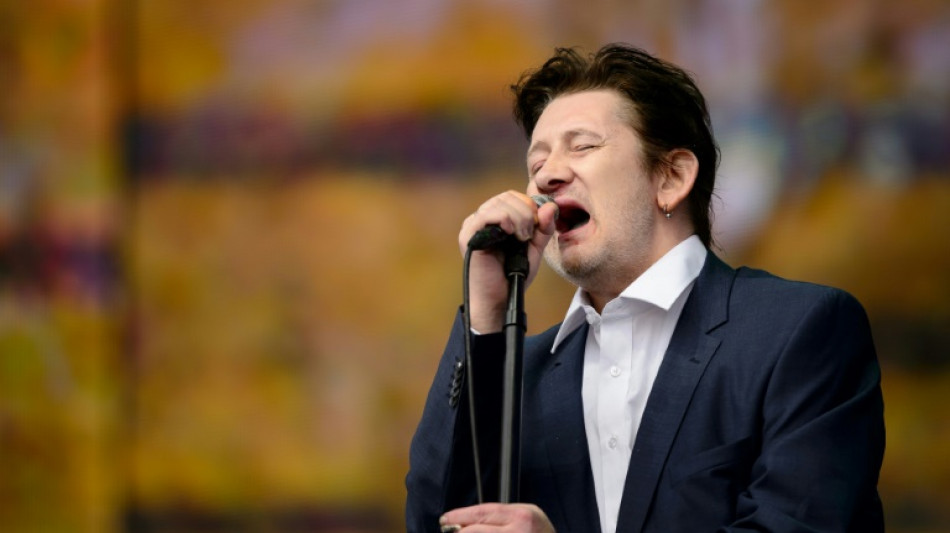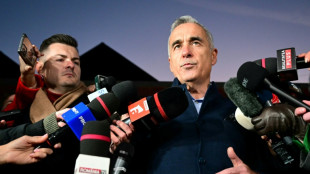

Shane MacGowan, folk-punk Pogues frontman, dies aged 65
Shane MacGowan, songwriter and lead singer of Celtic folk-punk band The Pogues, has died aged 65 after a long illness, his wife announced Thursday.
"Shane who will always be the light that I hold before me... has gone to be with Jesus and Mary and his beautiful mother Therese," wrote MacGowan's wife Victoria Mary Clarke in an Instagram post.
MacGowan, who had been in and out of hospital in Dublin since July, is most famous for penning the Christmas classic "Fairytale of New York", a duet sung with Kirsty MacColl in 1987. Clarke's post did not say when he died.
Co-formed by MacGowan, the Pogues fused punk and Irish folk music. He was born in England but spent much of his childhood in Ireland with his mother's family.
The band became an international symbol of Irishness, both at home and for the sprawling diaspora, with MacGowan's contribution recognised in a slew of tributes from political leaders.
"Shane will be remembered as one of music's greatest lyricists," Irish President Michael D. Higgins said in a statement.
"So many of his songs would be perfectly crafted poems, if that would not have deprived us of the opportunity to hear him sing them," he said.
Taoiseach (prime minister) Leo Varadkar called MacGowan "an amazing musician and artist".
"His songs beautifully captured the Irish experience, especially the experience of being Irish abroad," he wrote on X (formerly Twitter).
Micheal Martin, Varadkar's deputy, said he was "devastated" by MacGowan's death, calling him "iconic".
"His passing is particularly poignant at this time of year as we listen to Fairytale of New York -- a song that resonates with all of us," he wrote.
There were tributes too from Sinn Fein, the former political wing of the Irish Republican Army paramilitary group which fought for decades against British rule in Northern Ireland.
The Pogues' 1988 song "Streets of Sorrow/Birmingham Six", which recounted the plight of six Irishmen wrongly imprisoned for deadly pub bombings in Birmingham, was banned from British airwaves.
The 1974 attacks that killed 21 and left scores more injured were blamed on the IRA.
The Birmingham Six saw their convictions quashed on appeal in 1991.
Sinn Fein president Mary Lou McDonald called MacGowan "a poet, dreamer and social justice champion".
"He was a republican and a proud Irish man. Nobody told the Irish story like Shane. He sang to us of dreams and captured stories of emigration," she said.
Her predecessor Gerry Adams -- a central figure in "The Troubles" and a close friend of MacGowan and Clarke -- said: "Ireland has lost a great patriot, a poet and friend of the down trodden and marginalised."
K.Costa--IM



